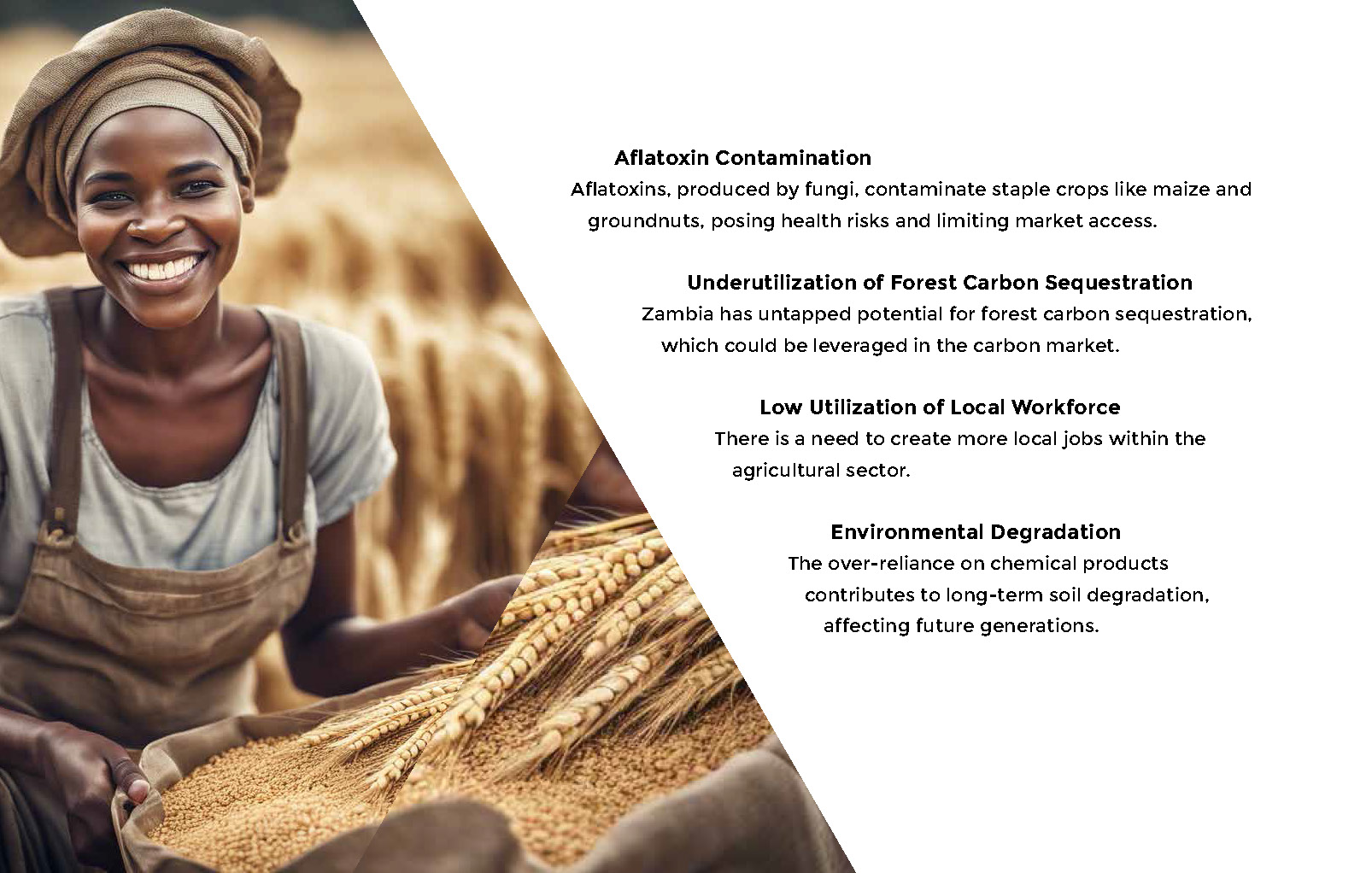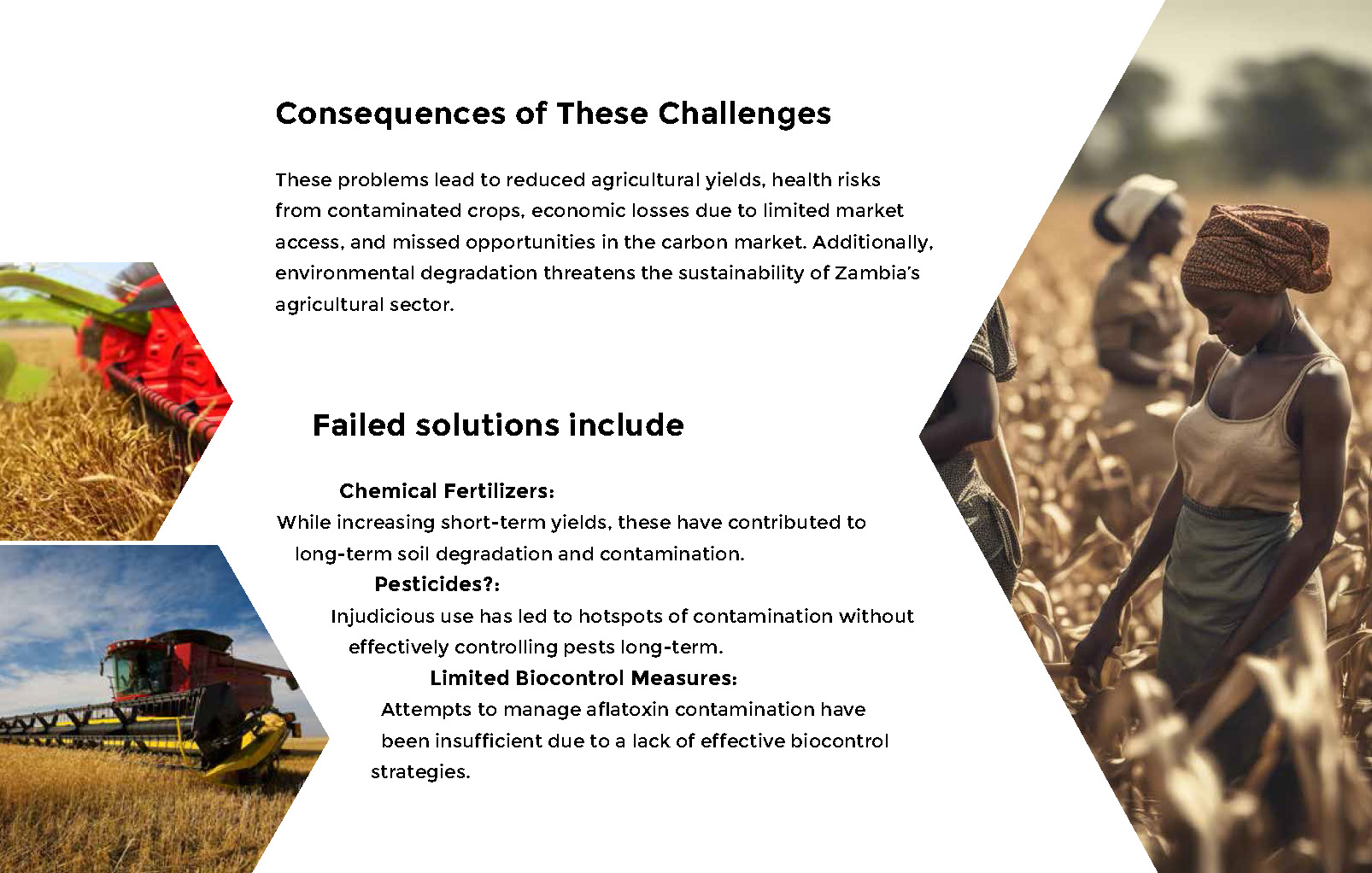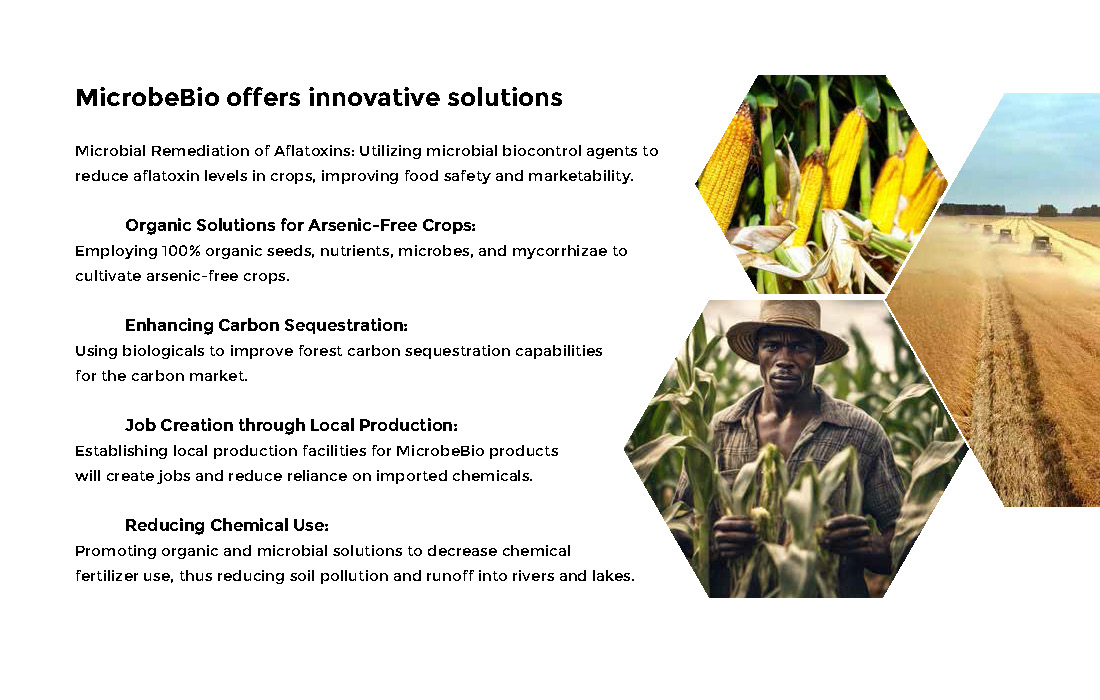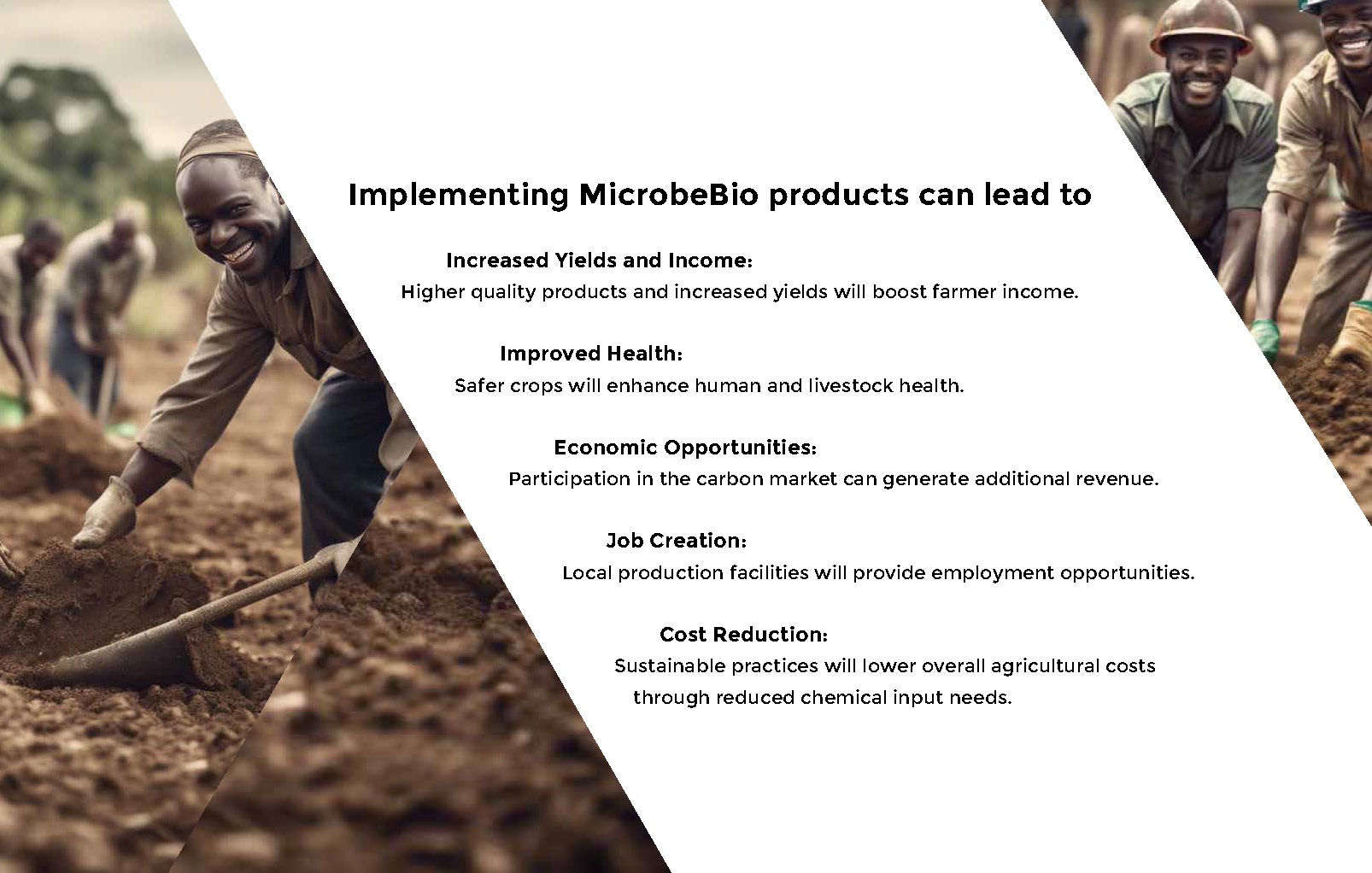Proposal for MicrobeBio Products in Zambia
Zambia’s agriculture faces significant challenges that hinder productivity and sustainability. These include:
Soil Contamination: The use of chemical fertilizers and pesticides has led to soil contamination with heavy metals, hydrocarbons, and persistent organic pollutants, affecting crop yields and food safety.
Salty and Arsenic-Contaminated Soils: Certain regions suffer from saline soils and arsenic contamination, further reducing agricultural productivity.
Aflatoxin Contamination: Aflatoxins, produced by fungi, contaminate staple crops like maize and groundnuts, posing health risks and limiting market access.
Underutilization of Forest Carbon Sequestration: Zambia has untapped potential for forest carbon sequestration, which could be leveraged in the carbon market.
Low Utilization of Local Workforce: There is a need to create more local jobs within the agricultural sector.
Environmental Degradation: The over-reliance on chemical products contributes to long-term soil degradation, affecting future generations.
These problems lead to reduced agricultural yields, health risks from contaminated crops, economic losses due to limited market access, and missed opportunities in the carbon market. Additionally, environmental degradation threatens the sustainability of Zambia’s agricultural sector.
Failed solutions include:
Chemical Fertilizers: While increasing short-term yields, these have contributed to long-term soil degradation and contamination.
Pesticides: Injudicious use has led to hotspots of contamination without effectively controlling pests long-term.
Limited Biocontrol Measures: Attempts to manage aflatoxin contamination have been insufficient due to a lack of effective biocontrol strategies.
MicrobeBio offers innovative solutions:
Microbial Remediation of Aflatoxins: Utilizing microbial biocontrol agents to reduce aflatoxin levels in crops, improving food safety and marketability.
Organic Solutions for Arsenic-Free Crops: Employing 100% organic seeds, nutrients, microbes, and mycorrhizae to cultivate arsenic-free crops.
Enhancing Carbon Sequestration: Using biologicals to improve forest carbon sequestration capabilities for the carbon market.
Job Creation through Local Production: Establishing local production facilities for MicrobeBio products will create jobs and reduce reliance on imported chemicals.
Reducing Chemical Use: Promoting organic and microbial solutions to decrease chemical fertilizer use, thus reducing soil pollution and runoff into rivers and lakes.
Implementing MicrobeBio products can lead to:
Increased Yields and Income: Higher quality products and increased yields will boost farmer income.
Improved Health: Safer crops will enhance human and livestock health.
Economic Opportunities: Participation in the carbon market can generate additional revenue.
Job Creation: Local production facilities will provide employment opportunities.
Cost Reduction: Sustainable practices will lower overall agricultural costs through reduced chemical input needs.
By adopting MicrobeBio’s innovative solutions, Zambia can transform its agricultural sector into a more productive, sustainable, and economically viable industry.












